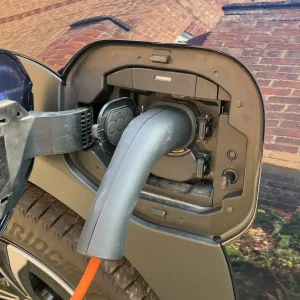Inadequate support for charging infrastructure is threatening the UK’s transition to EVs, according to a new report from Novuna Vehicle Solutions.
The leasing company has published the Electric Vehicle Ecosystem Report, based on insights from more than 2,000 drivers, along with in-depth analysis of public data.
Among the report’s findings is that the ratio of EVs on UK roads to public chargers has increased threefold during the past three years, from five to one to 15 to one.
In addition, according to Novuna’s projections of EV demand, this will rise to 54 to one by 2030, even if the UK Government’s target of having 300,000 more public chargers by that date is met.
Currently, the report states that 31% of EV drivers frequently have to queue for a charger, and 76% say that based on their experiences, the UK’s current charging infrastructure is unfit for purpose.
Commenting with the release of the report, Novuna head of decarbonisation Jonny Berry said: “Demand for EVs has accelerated at a relentless pace, yet we’re rapidly facing the prospect of failing to realise the level of adequate public charging infrastructure to support mass adoption of EVs by the start of the next decade.
“The government vows to have 300,000 public chargers installed by 2030, but with just 32,000 devices in the ground today, our research puts into question whether this target is achievable. It has taken ten years to reach this milestone – we must now build the same number in a single year – and then repeat that feat every year until the end of the decade.
“However, even if we manage to hit this magic tenfold number, we expect to see the ratio of cars to chargers will increase from 15:1 to 54:1, and that’s going to mean a lot more competition for charger provision; competition which is already being felt today in many parts of the country, unless the new government reignites investment in this area.”
According to Novuna’s research, 81% of EV drivers in the UK want the government to do more to boost the number of chargers, and 79% want their local authority to do more.
In addition, petrol and diesel car drivers want to see better driving provision before they make the switch (71% and 68% respectively).
Berry said: “Our findings highlight how the charging network is not only a cause of frustration for EV drivers, but also the millions of petrol and diesel drivers looking to transition to electric sooner rather than later.
“Having to queue for a charge is a concern raised all too often by motorists, illustrating just how pressing it is for more charge points to be installed as a matter of urgency.
“Without radically transforming existing infrastructure addressing charging anxiety, the road map to net zero will undoubtedly extend beyond 2030.”





